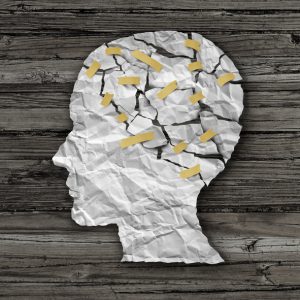Traumatic Brain Injury is a very serious public health issue in the United States. A Traumatic Brain Injury (TBI) is categorized into two major types of injuries: Penetrating Injuries and Closed Head Injuries. Penetrating injuries occur when a foreign object (e.g., a bullet) enters the brain and causes damage to specific brain parts. Closed Head Injuries result from a blow to the head as occurs, for example, in a car accident when the head strikes the windshield or dashboard.
Between 2002 and 2011, the number of children making trips to emergency rooms for brain injuries increased by 92 percent. During the same time, the number of those admitted to the hospital for further observation or treatment also increased by about 10 percent.
The Centers for Disease Control and Prevention has called traumatic brain injury an “invisible epidemic,” because unlike other injuries, such as broken bones, the symptoms are not always immediately identifiable. According to the CDC, almost 500,000 emergency room visits for traumatic brain injuries each year are made by children under the age of 14. And each year, emergency rooms nationwide treat nearly 175,000 sports-related traumatic brain injuries among children under the age of 19.
With March being Brain Injury Awareness Month, The Jamaica Hospital Department of Surgery Trauma Division wants to make sure you and your loved ones recognize traumatic brain injuries in children.
Call 9-1-1 or take the child to the emergency department right away if after a bump, blow, or jolt to the head or body the child exhibits one or more of the following danger signs:
- One pupil larger than the other
- Is drowsy or cannot be awakened
- A headache that gets worse
- Weakness, numbness, or decreased coordination
- Repeated vomiting or nausea
- Slurred speech
- Convulsions or seizures
- Cannot recognize people or places
- Becomes increasingly confused, restless
The following are some tips from the Centers for Disease Control and Prevention (CDC) and the Brain Injury Association of America to reduce the chances that you or your family members will have a brain injury:
- Always buckle your child into a child safety seat, booster seat, or seat belt (according to the child’s height, weight, and age) in the car.
- Make sure your children wear helmets when riding a bike, scooter, or playing a contact sport, such as football, baseball or ice hockey.
- Avoid falls in the home by: Installing window guards to keep young children from falling out of open windows. Using safety gates at the top and bottom of stairs when young children are around. Using non-slip mats in the bathtub and on shower floors;
All content of this newsletter is intended for general information purposes only and is not intended or implied to be a substitute for professional medical advice, diagnosis or treatment. Please consult a medical professional before adopting any of the suggestions on this page. You must never disregard professional medical advice or delay seeking medical treatment based upon any content of this newsletter. PROMPTLY CONSULT YOUR PHYSICIAN OR CALL 911 IF YOU BELIEVE YOU HAVE A MEDICAL EMERGENCY.

